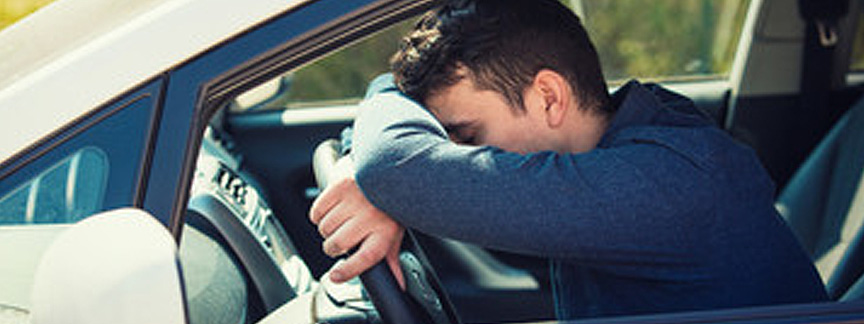
Put Sleep First. Drowsy Driving is Dangerous!
Less than 6 hours of sleep triples your risk of falling asleep while driving! Drowsy driving is just as dangerous as driving under the influence. Like alcohol, sleepiness can slow down your reaction time, decrease awareness of your surroundings, impair judgement, and increase your risk of crashing which could harm yourself and others. *
Below are some drowsy driving warning signs to watch for:
- Finding it hard to focus on the road, frequent blinking, or heavy eyelids
- Starting to daydream, wandering eyes, and have disconnected thoughts.
- Having trouble remembering the last few miles driven.
- Missing an exit or ignoring traffic signs.
- Yawning repeatedly or rubbing your eyes.
- Finding it hard to keep your head up or nodding off.
- Drifting from your lane, tailgating or hitting a shoulder rumble strip.
- Feeling restless and irritable, or becoming aggravated with common annoyances such as sitting in traffic.
Before you get in the car with someone or drive yourself, ask the following questions:
- Are you sleep deprived or fatigued?
- Are you planning to drive long distances without proper rest breaks?
- Will you be driving through the night, mid-afternoon, or when you would normally be asleep?
- Are you taking medications that can make you sleepy such as antidepressants, cold tablets, or antihistamines?
- Have you been working for more than 60 hours a week?
- Have you been working more than one job and your main job involves shift work?
- Did you drink alcohol? Even a small amount of alcohol can have an impact on your body.
According to the National Sleep Foundation, below are some tips to make sure you don’t drive drowsy:
- Get the recommended 7-9 hours of sleep per night for adults and 8-10 hours for teens.
- Plan your long trips with a companion.
- Schedule regular stops for your trip, every 100 miles or two hours.
- Avoid alcohol and be aware of any medications (over-the-counter and prescribed) that may cause drowsiness and impair performance.
- Consult your physician or a local sleep disorders center if you have difficulty staying awake while driving or have frequent daytime sleepiness.
*Source: National Sleep Foundation



